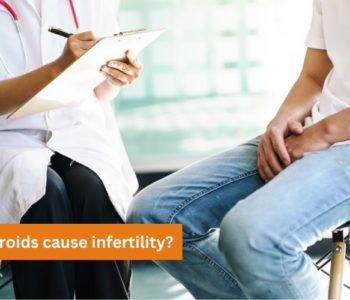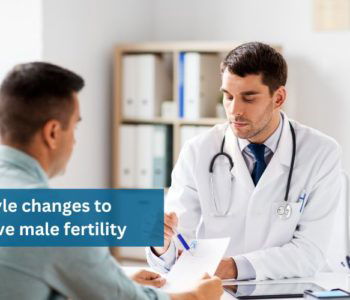Getting Pregnant after 35: Tips to Follow
 IVF
IVF
Getting Pregnant after 35: Tips to Follow
Age is directly linked to a woman’s fertility, and can severely impact your chances at pregnancy. While a woman is most fertile during her 20s, her fertility starts to deteriorate at the onset of the mid-30s. A woman’s fertility usually peaks between the age of 24 and 34. From age 35 onwards, there’s a gradual decline in the fertility rate, with an increase in the chromosomal abnormalities
However, late pregnancy is on the rise across the world as couples delay parenthood due to several socio-economic factors, such as prioritizing their career, struggle for gender equality, ensuring financial security, consolidating their relationship, etc. In India, about 20-30% women are reportedly opting for late motherhood.
Thanks to revolutionary modern technologies like IVF and egg freezing that aid pregnancy planning and management, men and women have the option to plan parenthood in their 30s as well, keeping their other goals in mind.
While late childbearing has been made possible with the invention of artificially reproductive technologies, a couple trying for a baby after 35 years of age must follow certain rules to improve their chances at parenthood to improve their odds. This guide will help choose a lifestyle that aids late parenthood through life-style changes.
Understand your menstrual cycle
The first and the foremost thing is to understand your body and how the reproductive system works, and try conception accordingly. A woman with a regular menstrual cycle would probably ovulate 2 weeks before the start of her next cycle. That would be the period during which you have to try getting pregnant.
Eat healthy
Only a healthy body will be able to withstand the challenges that are part and parcel of childbearing and childbirth. Through healthy dietary practices, make your body strong and more receptive for childbearing. While you are at it, say goodbye to all the junk food and make fruit and vegetables a regular in your diet.
Quit alcohol, smoking
Intake of food that is good for you is not enough. You also have to refrain from putting in your body anything that harms it. In the best interest of your own health and the health and wellbeing of your future offspring, adopt a lifestyle where smoking, alcohol and drug abuse have no place.
Work-out regularly
Your work-out regimen is another factor that significantly impacts your health and wellbeing. While working out should not be optional for anyone trying for pregnancy, it is more important for couples aged 35 and above. A woman should opt for mild-intensity workout regimens such as Yoga, Pilates, etc., as they prepare for pregnancy.
Watch your weight
Since a woman’s weight influences the functioning of her body in many ways, it also affects her changes at pregnancy. The doctor recommended BMI (body mass index) for getting pregnant is between 18.5 and 24.9. Your weight — whether it is higher than the normal benchmark or lower than it — can affect your ability to get pregnant. Through dietary control and workout regime, maintain your BMI in the recommended range.
Don’t obsess and overthink
Overthinking and obsessiveness are never good mental engagements for a future mother. Give this process and ongoing treatments the time they require to make those positive changes you desire. Negative sentiments are highly detrimental to your overall health and wellbeing, consequently conception is a lot more difficult.
Find an expert
Needless to say, your chances of childbearing improve manifold if you are in good hands. Find an expert, with a proven track record and high success rate when option for artificial reproduction technology-led treatments like IVF. Proper guidance and assistance are more crucial to achieving pregnancy after 35 years of age.









